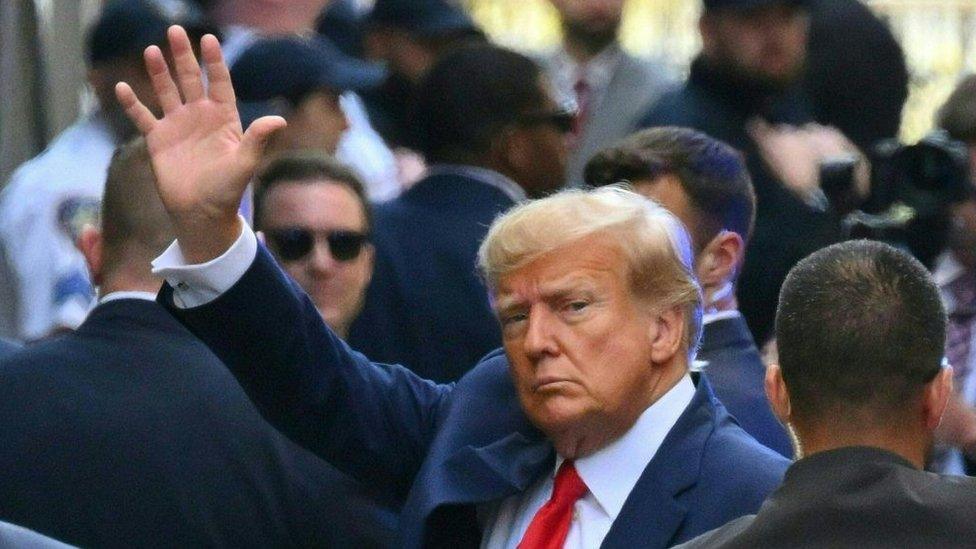Trump Georgia election case faces first major test
- Published
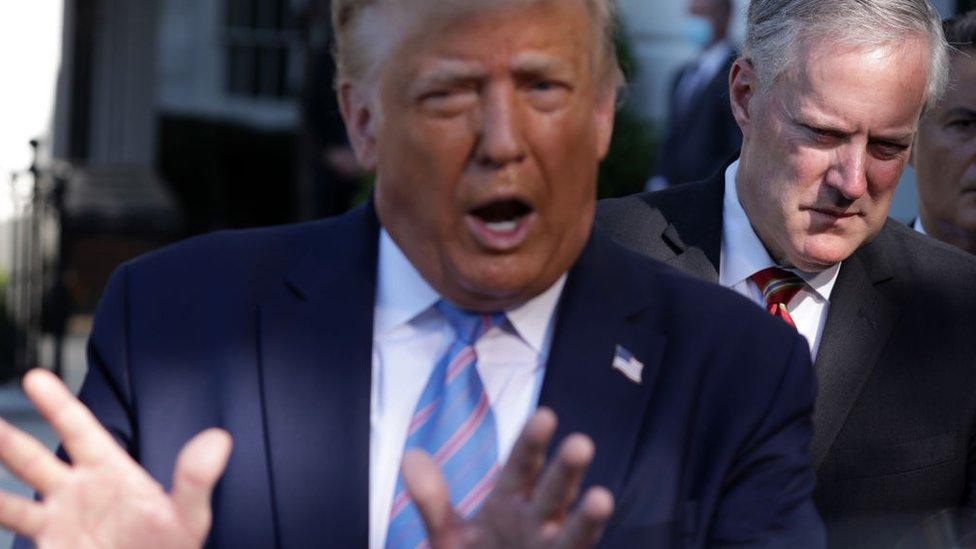
Mark Meadows (right) at the White House in July 2020
One of Donald Trump's co-defendants in the Georgia election interference inquiry has testified as he tries to get his case moved to federal court.
The hearing for an ex-White House chief of staff was a closely watched challenge to prosecutor Fani Willis.
If Mark Meadows succeeds, it could pave the way for Mr Trump and other defendants to move their cases, too.
Mr Trump, Mr Meadows and 17 others are charged with a conspiracy to overturn the state's 2020 election results.
All 19 defendants surrendered at the Fulton County Jail in Atlanta last week, including Mr Trump, who had his mugshot taken.
Court filings released on Monday indicate they will be arraigned on 6 September, when each be expected to enter a plea.
Mr Trump, the frontrunner for the 2024 Republican presidential nomination, has denied any wrongdoing and says the Georgia prosecutor is politically motivated.
Mr Meadows is accused of arranging calls and meetings in which Mr Trump allegedly pressured state election officials to change the vote count in his favour. He is charged with racketeering and felony solicitation of violation of oath by public officer.
The former White House aide and his lawyers argued he was acting in his capacity as a federal employee, and therefore his case should be moved from state court to federal court.
On Monday, Mr Meadows faced cross-examination from his lawyer, George Terwilliger III, as well as special prosecutor Anna Cross and US District Judge Steve Jones, who presided.
During nearly three hours of testimony, according to the Atlanta Journal Constitution, external, Mr Meadows said: "I don't know that I did anything that was outside my scope as chief of staff."
He testified that his role gave him "a very broad responsibility", Politico, external reported, and that the federal government had a legitimate interest in assuring "accurate and fair elections".
Judge Jones did not rule from the bench on Monday, but said he would issue a decision soon, local media reported.
Ms Willis, the Fulton County district attorney, is challenging Mr Meadows' reasoning that the proceedings should be moved.
A bid to move jurisdictions
Ms Willis, a Democrat, brought Georgia state charges, which means that for now the case will be overseen by a state court in Fulton County, encompassing the Atlanta area.
But under a process known as "removal", defendants can argue that their cases should be tried in federal court if they were acting in their capacity as federal employees. They would still be tried on the state charges, however.
Mr Meadows, who served as the White House chief of staff at the time the alleged crimes took place, is making this argument.
"Mr Meadows has the right to remove this matter," his lawyers wrote in a recent court filing. "The conduct giving rise to the charges in the indictment all occurred during his tenure and as part of his service as chief of staff."
They also argued that "nothing Mr Meadows is alleged in the indictment to have done is criminal per se".
Four other defendants - former justice department official Jeffrey Clark, Georgia lawmaker Shawn Still, former Georgia Republican chairman David Shafer and alleged "fake elector" Cathy Latham - have also filed for removal.
Legal experts have told the BBC that Mr Trump's lawyers could attempt to file for removal as well.
Mr Meadows is the first to receive a hearing, making his removal attempt a key test for whether other co-defendants may follow suit.
The advantages of moving the case
There could be a few incentives for a defendant to transfer their case to federal court.
The first is the presumption of a wider and more politically diverse jury pool. Fulton County, which encompasses Atlanta, is solidly Democratic. The federal jurisdiction of Northern Georgia encompasses a broader area, including some Republican counties. But a friendlier jury is not guaranteed by a change to the federal court.
The jury could still be pulled from a division of that federal jurisdiction that encompasses the counties around Atlanta. Mr Trump lost many of the counties surrounding Atlanta in the 2020 election.
Switching to a federal jurisdiction would also put the case on a smoother path through the federal appeals courts and potentially, to the US Supreme Court, which has a 6-3 conservative majority thanks to Mr Trump's appointments.
Moving to federal court may also buy the lawyers representing Mr Meadows and other plaintiffs some time as they engage in more legal manoeuvres related to the switch.
Another potential bonus is that cameras aren't typically allowed in a federal courtroom.
But even if any of the cases are moved to federal court, neither Mr Trump nor any Republican who takes the White House in 2024 will be able to issue a pardon for these alleged crimes.
The president's pardon power extends to convictions on federal crimes, not state ones.
And Georgia's lengthy pardons process means any legal reprieve would take years to come to fruition - if ever.
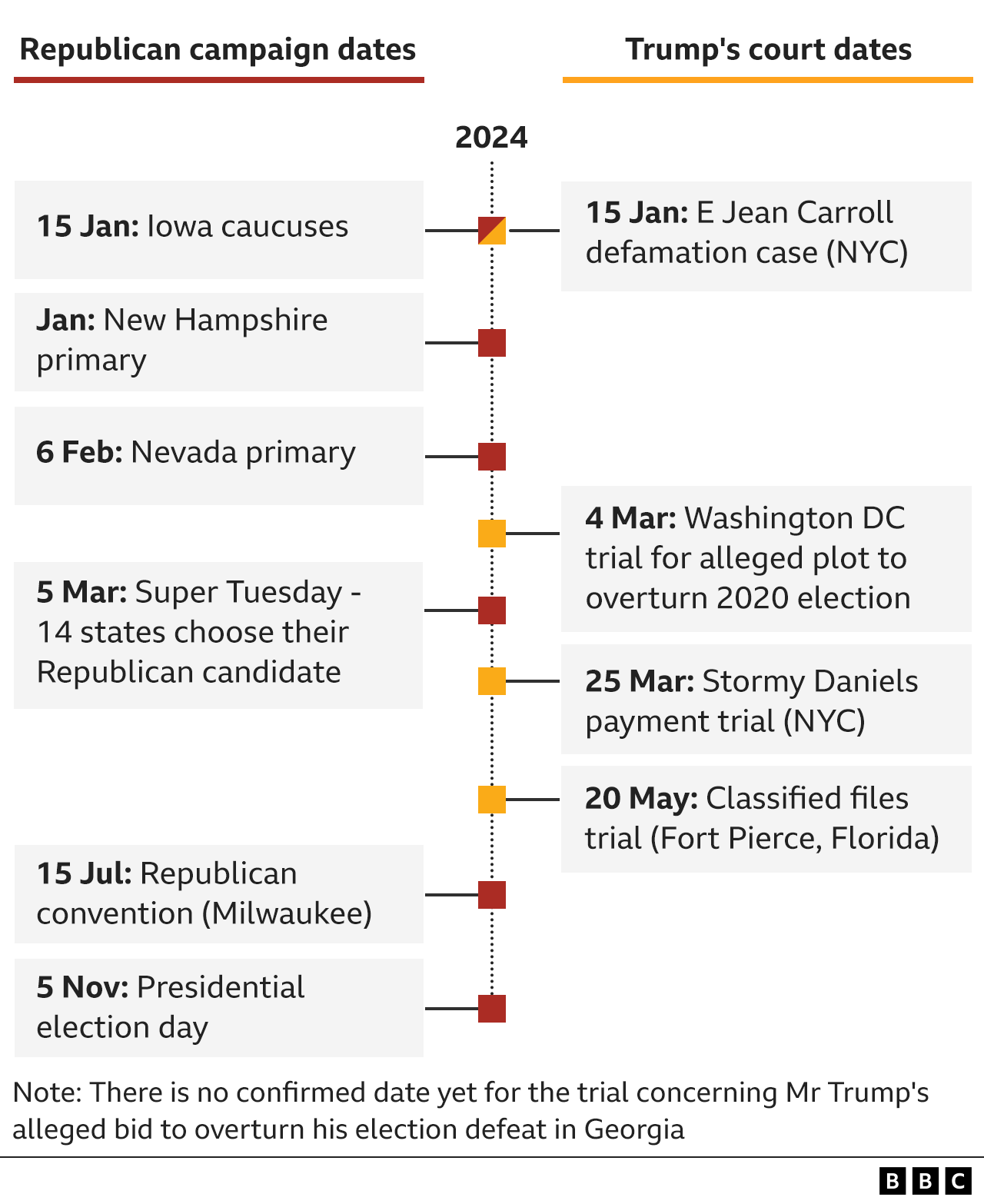
- Published25 August 2023
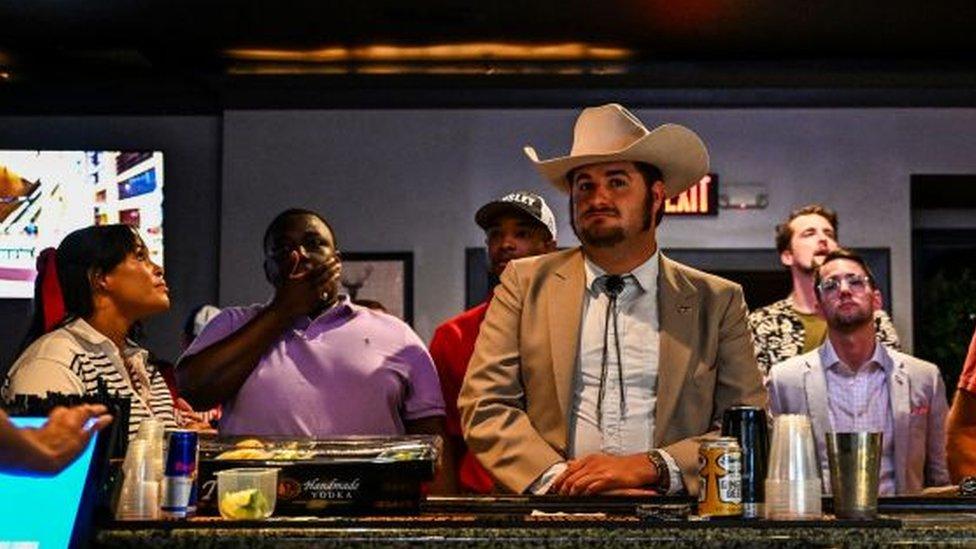
- Published25 August 2023
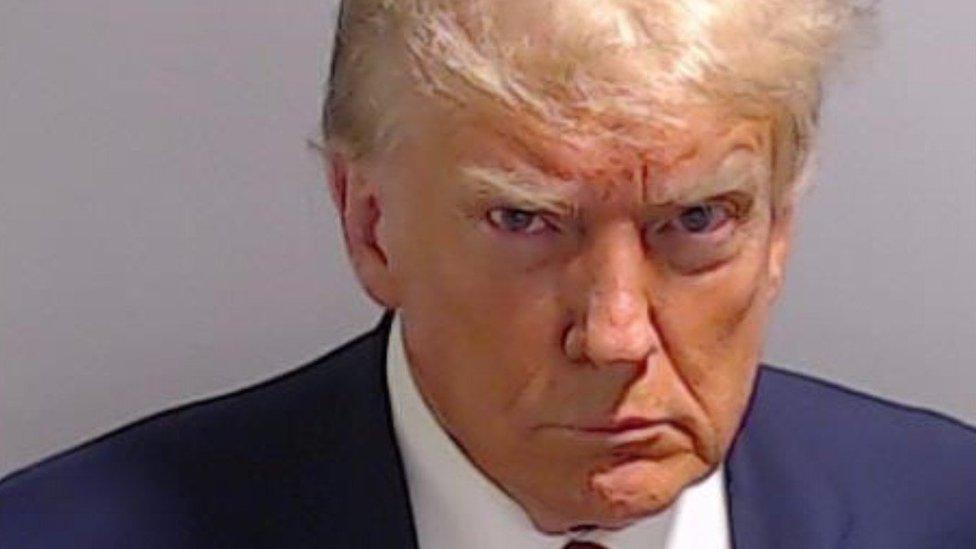
- Published25 August 2023
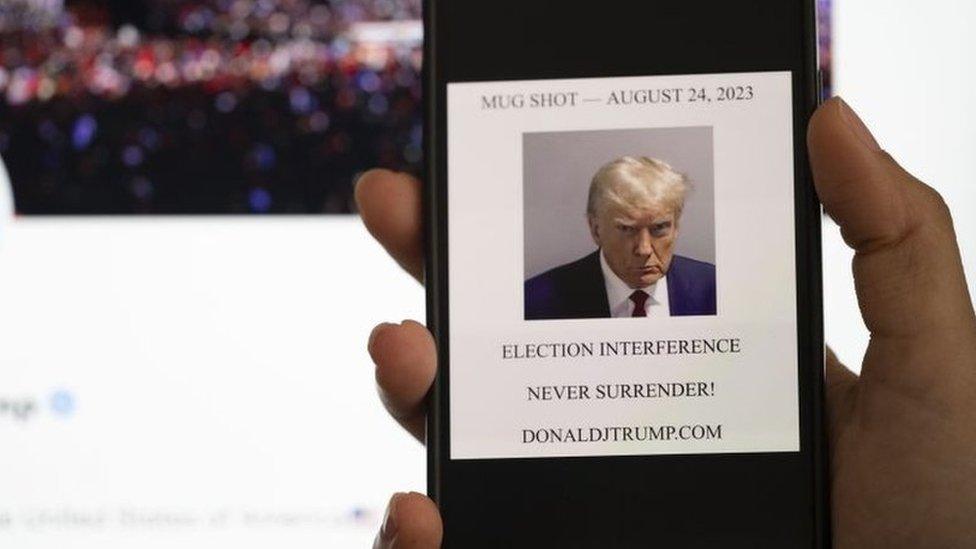
- Published25 August 2023
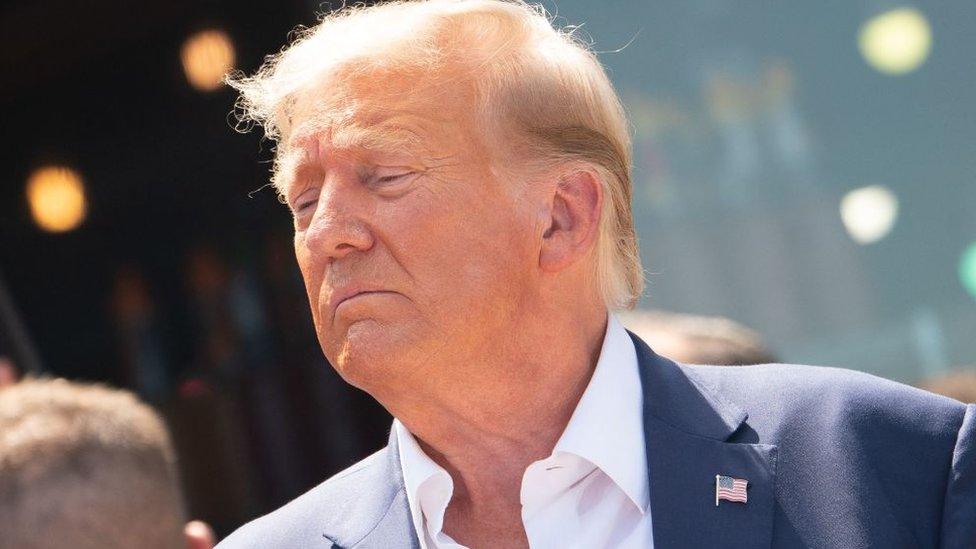
- Published25 August 2023
